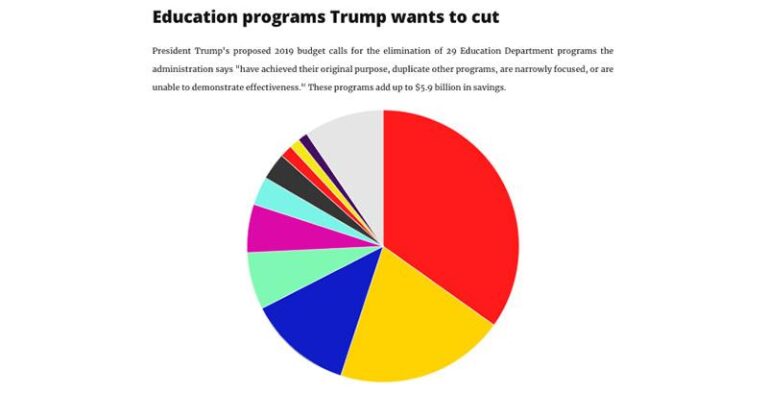How Federal Education Budget Cuts Could Reshape Philadelphia’s Public Schools
Examining the Ramifications of Federal Funding Reductions on Philadelphia’s Education System
Philadelphia’s public school system is bracing for potential hardships as proposed cuts to the U.S. Department of Education’s budget threaten to reduce vital federal support. Federal dollars are instrumental in sustaining programs that serve vulnerable student populations, including those requiring special education, mental health services, and nutritional assistance. The anticipated decrease in funding raises concerns about the city’s ability to maintain the quality and breadth of educational services, potentially impacting thousands of students.
Key areas likely to experience strain include:
- Decreased availability of counseling and mental health resources
- Scaling back of career and technical education programs
- Postponement of necessary school facility repairs and upgrades
- Fewer opportunities for teacher training and professional growth
| Program | Current Federal Allocation | Projected Impact |
|---|---|---|
| Title I Funding | $120 million | Potential reduction in services for economically disadvantaged students |
| Special Education | $80 million | Less personalized support for students with disabilities |
| School Meal Assistance | $30 million | Decreased meal subsidies affecting student nutrition |
Voices from Philadelphia’s Education Leadership on Federal Budget Threats
Officials within the Philadelphia School District have expressed deep concern regarding the potential fallout from federal budget cuts. They emphasize that many programs critical to leveling educational opportunities for underserved communities could face severe cutbacks. These include special education, mental health initiatives, and extracurricular enrichment programs. A district representative noted, “The loss of federal funding jeopardizes the support systems that help bridge educational gaps for our students.”
Among the immediate worries highlighted by district leaders are:
- Possible reductions in instructional support personnel
- Limited access to grants aimed at expanding digital learning tools
- Scaling back of teacher development and training programs
| Focus Area | Likely Consequence |
|---|---|
| Special Education | Increased student-to-aide ratios, larger class sizes |
| Technology Funding | Delays in updating classroom technology |
| Mental Health Services | Reduced availability of counseling support |
Consequences for Student Services and Educational Equity Amid Funding Instability
With federal funding in flux, Philadelphia’s educational programs that serve disadvantaged students face an uncertain future. Vital services such as after-school tutoring, mental health counseling, and meal programs are at risk of downsizing or elimination. These programs are essential for providing safe environments and equitable learning opportunities. School administrators warn that ongoing financial shortfalls could lead to staff layoffs and diminished program availability, further widening educational disparities.
Programs most dependent on federal support include:
- Special education initiatives that offer tailored assistance to students with disabilities
- Title I grants which fund resources for low-income families
- After-school enrichment activities that provide academic and social support
| Program | Percentage of Federal Funding | Potential Outcome |
|---|---|---|
| Special Education | 35% | Service reductions and longer waitlists |
| Title I Grants | 50% | Fewer educational resources for low-income students |
| After-School Programs | 40% | Program closures or reduced operating hours |
Proactive Measures for Philadelphia’s Community to Counteract Federal Funding Cuts
To mitigate the adverse effects of shrinking federal education budgets, Philadelphia’s educators and community-center-in-swing-state-of-pennsylvania-pbs/” title=”WATCH: Harris rallies voters at Philadelphia … center in swing state of Pennsylvania – PBS”>community organizations are exploring innovative strategies. One effective approach is cultivating partnerships with local enterprises and nonprofit groups to fill funding voids. These alliances can support critical programs such as STEM education, after-school learning, and college preparation, ensuring continuity despite federal cutbacks.
Moreover, fostering strong advocacy efforts and maintaining transparent communication with families and state lawmakers are essential. By presenting clear evidence of the impact, communities can galvanize support for increased state funding or alternative financial resources. The following framework outlines actionable steps for stakeholders:
| Initiative | Description | Anticipated Benefit |
|---|---|---|
| Building Partnerships | Collaborate with businesses and nonprofits to secure program funding | Expanded program offerings and more reliable funding |
| Community Mobilization | Coordinate advocacy campaigns targeting state policymakers | Increased state education budgets and supportive policies |
| Transparent Impact Reporting | Regularly share data on funding effects with stakeholders | Enhanced trust and community engagement |
Looking Ahead: Navigating the Future of Philadelphia’s Public Education
As discussions around the U.S. Department of Education’s budget continue, Philadelphia’s public schools stand at a pivotal juncture. The prospect of reduced federal funding threatens to disrupt essential programs and resources that support student success and equity. Educators, parents, and policymakers must collaborate to develop strategic responses that protect and strengthen the city’s educational landscape. Ongoing coverage and analysis will be crucial as this story evolves, highlighting the importance of community engagement and innovative solutions to sustain quality education for all Philadelphia students.








